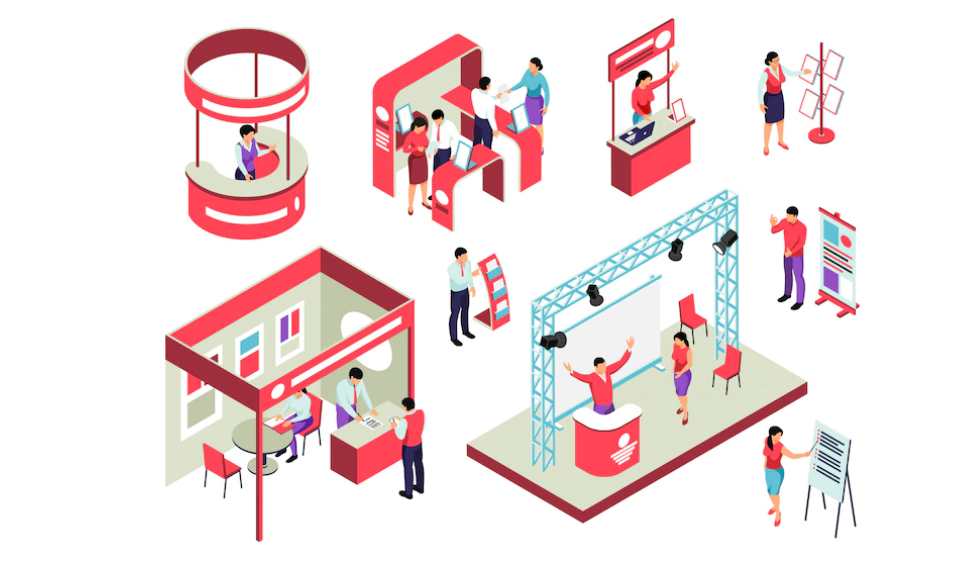
B2B event marketing refers to the use of events and conferences as a marketing strategy to promote products or services to other businesses. These events can be in-person or virtual and range in size from small, invitation-only gatherings to large trade shows.
But why is B2B event marketing important? What are the different types of event marketing, and what are the B2B event marketing strategies that ensure success? In this article, you’ll learn about them all. Let’s get started.
Why is B2B Event Marketing Important?
Event marketing is a valuable tool for B2B marketers because it allows them to engage directly with their target audience and establish relationships with potential customers.
B2B products and services often require more consideration and decision-making than B2C products, so B2B marketers must provide opportunities for potential customers to learn more about their offerings and ask questions.
Additionally, it is essential for several other reasons:
- Networking: B2B events allow businesses to connect with potential clients, partners, and industry leaders.
- Lead generation: Events can effectively generate leads and sales by allowing businesses to present their products or services to a targeted audience.
- Brand awareness: Events can help businesses create an image of a thought leader in the industry.
- Education: Events can also provide an opportunity for businesses to educate their target audience about their products or services, industry trends and best practices.
- Customer engagement: B2B events can be a great way to engage with existing customers and gather valuable feedback and insights.
Types of B2B Event Marketing
As per a study from (the Center for Exhibition Industry Research), nearly 41% of the marketing budget goes into B2B exhibiting. Event marketing refers to using events, such as trade shows, conferences, and concerts, to promote a product, service, or brand.
There are several types of event marketing, including:
1. Trade shows
Trade shows are events where businesses and organizations in a specific industry or market gather to display and demonstrate their products or services to potential buyers, customers, and partners. They allow companies to showcase their offerings and connect with potential clients, partners, and suppliers.
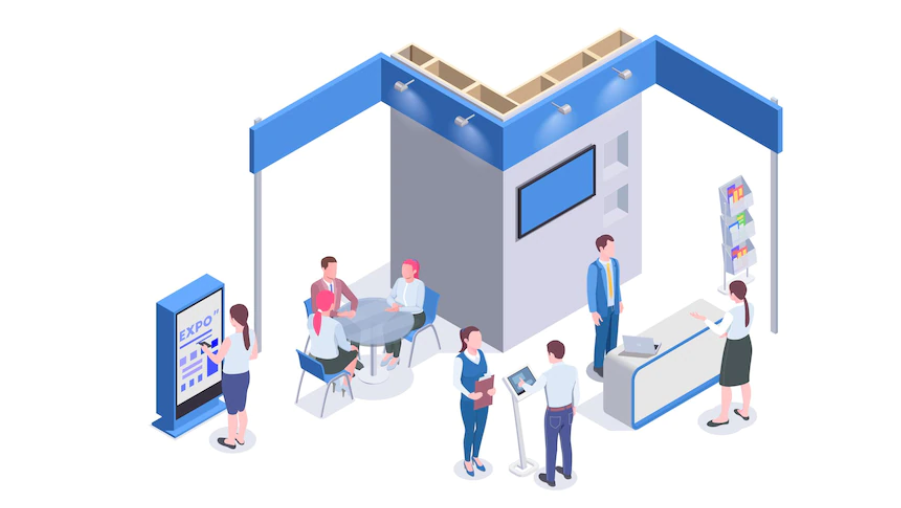
Trade shows follow various formats, including in-person events, virtual events, or a combination of both. Industry associations, trade organizations, event companies, or other entities can organise them.
Trade shows can be an essential marketing and sales tool for businesses, as they provide a platform for companies to:
- Demonstrate their products or services to a large and targeted audience
- Build brand awareness and recognition
- Generate leads and connect with potential customers and partners
- Stay up-to-date on industry trends and innovations
- Network and establish relationships with other industry professionals
Trade shows can be beneficial for B2B (business-to-business) companies, as they provide an opportunity to connect with other businesses and professionals in their industry. They can be an effective way for B2B companies to promote their products or services to other businesses and to find new partners and suppliers.
2. Conferences
Conferences are events where people gather to discuss a specific topic or industry. They often involve presentations, workshops, and networking opportunities. One can conduct conferences in-person or virtually, ranging in size from a few dozen to several thousand attendees.
Conferences are essential as B2B (business-to-business) events because they provide a platform for companies to connect, interact with, and be well up-to-date with the latest trends and developments in their industry. They can also allow companies to display their products and services to potential customers, clients, and partners.
Conferences can also provide a forum for companies to establish and strengthen their relationships with key influencers and thought leaders in their industry, which can benefit their business.
In addition, conferences can be a source of new ideas and inspiration for business professionals. By attending presentations and networking with industry experts, attendees can learn about new approaches and technologies to help their businesses grow and succeed.
3. Product Launches
Product launches are events where a company introduces a new product or service. These events can take many forms, ranging from small, invitation-only gatherings to significant public events.
Product launches are a vital part of a company’s marketing strategy. They provide an opportunity to showcase the product or service to potential customers and partners, generate buzz and interest in the market, and build excitement around the launch.

Product launches can be significant for B2B (business-to-business) companies. B2B products and services are typically more complex and specialised and often require a deeper understanding of the product or service before purchasing.
Product launches provide an opportunity for B2B companies to demonstrate the value and functionality of their products or services to potential customers and can help to build long-term relationships with key partners in the industry.
In addition to introducing new products or services, one can use product launches to announce updates or improvements to existing products or services. Doing so can be especially useful for companies looking to keep their products or services relevant and competitive.
4. Sponsorship Events
Companies can sponsor events, such as concerts or sporting events, to get their brand in front of a large audience. The company or organization provides financial or other types of support to the event in exchange for the opportunity to promote its products or services to the event attendees.
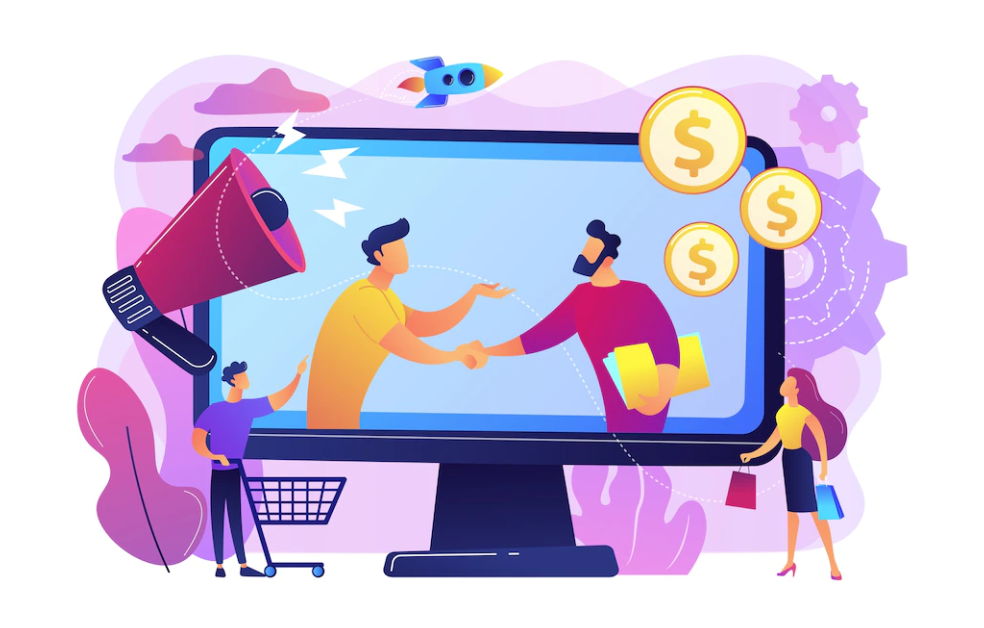
Sponsorship events can be a wide range of activities, including concerts, sports events, festivals, conferences, and charity events.
Sponsorship events are essential for several reasons.
They provide a way for companies to reach out to a targeted audience and promote their products or services. By sponsoring an event relevant to its target audience, a company can effectively market to and engage with that audience.
Sponsorship events also allow companies to build brand awareness and reputation and establish themselves as a leader in their industry.
Additionally, sponsorship events can be a valuable source of revenue for the event organizers, as the sponsorship support helps to cover the costs of hosting the event. Doing so can allow the event to offer lower ticket prices, making it more accessible to a broader audience.
5. User Group Events
User groups are events that bring together people who use a specific product or service. These events can be a great way to get feedback and build a community around a product or service.
These events can be organized by the company that produces the product or by a group of passionate users.

User group events are essential for several reasons. First and foremost, they provide an opportunity for users to learn about new developments and updates in the product or technology they are interested in. Doing so can be especially useful for users looking to stay up-to-date with the latest features and functionality.
In addition to learning about new developments, user group events allow users to network with other users and industry experts. These events can be a valuable resource for users looking to share ideas and best practices and those seeking guidance or support with their product use.
User group events can also be an excellent way for companies to gather user feedback and ideas. These events can help the company understand what users like and dislike about their product and can help them make informed decisions about future development and improvements.
Overall, user group events are essential for users to stay connected to the products and technologies they are interested in. They can be valuable resources for learning, networking, and gathering feedback.
6. Experiential Marketing Events
Experiential marketing events are interactive marketing campaigns that allow consumers to engage with a brand or product in a physical, immersive way. These events can take many forms, such as product demonstrations, interactive exhibits, brand activations, etc.
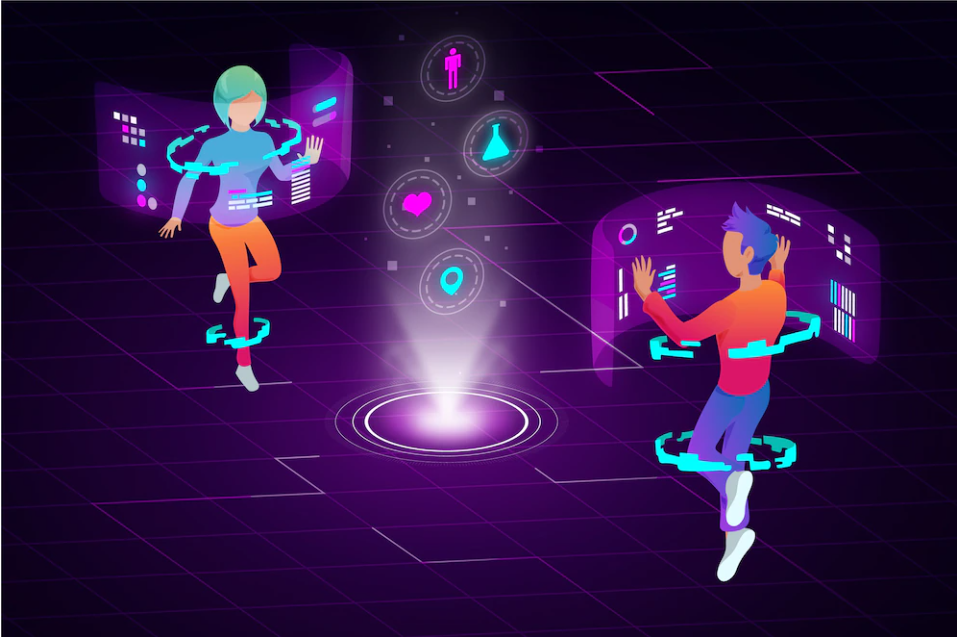
Experiential marketing events are essential for several reasons. First, they can help a brand differentiate itself from its competitors and build a deeper connection with consumers. By providing an immersive and interactive experience, these events can help consumers feel more connected to the brand and its values, which can lead to increased loyalty and advocacy.
Second, experiential marketing events can be an effective way to generate buzz and drive word-of-mouth promotion. When consumers have a positive and memorable experience with a brand, they are more likely to share that experience with their friends and family, which can help increase brand awareness and reach.
Finally, experiential marketing events can be an effective way to gather valuable customer feedback and data. By interacting with consumers physically, brands can gather real-time feedback and insights to help inform future marketing and product development efforts. To know more about Experiential marketing events, read our blog, 18 Great Experiential Marketing Examples To Inspire Your Next Event.
7. Charity Events
Companies can also get involved in charitable events as a means to contribute to the community and promote their brand at the same time. Charitable events raise money or awareness for a particular cause or charity. These events can take many forms, such as fundraisers, charity walks or runs, and benefit concerts.

Charitable events are essential for several reasons. First and foremost, they can raise significant amounts of money to support the work of charities and non-profit organizations. This funding can help these organizations to continue their important work, whether it is providing services to those in need, supporting research, or advocating for important causes.
In addition to raising money, charitable events can also raise awareness about important issues and causes. By bringing people together to support a particular reason, these events can educate the public about the work of charities and the problems they are addressing. These events can inspire people to participate and make a difference in their communities.
Charitable events can also bring people together and create community and solidarity. Participating in these events makes people feel connected to something larger than themselves and positively impacts the world around them.
B2B Event Marketing Strategies That Ensure Success
Overall, B2B event marketing strategies are essential for building relationships, generating leads, and raising awareness of your brand. You can advantageously reach out to your target audience and drive business success by carefully planning and executing your event strategy.
Here are some of the crucial B2B event marketing strategies below.
1. Clearly Define Your Target Audience
It’s essential to clearly understand who you are trying to reach with your event. Doing so will help you tailor your marketing efforts to the right audience and increase your chances of success.
Defining your target audience is essential in event marketing because it helps you focus your efforts on the people most likely to attend your event. By knowing who your target audience is, you can tailor your marketing messages to appeal to their interests and needs and choose marketing channels that are likely to reach them.

For example, suppose your target audience is young professionals in a particular industry. In that case, you should focus your marketing efforts on social media platforms that are popular with that demographic, such as LinkedIn, and create marketing messages that speak to their interests and needs.
On the other hand, if you cater to families with young children, you should focus on marketing channels that reach that demographic. These could include local parenting magazines or websites and create marketing messages highlighting your event’s family-friendly aspects.
Clearly defining your target audience is a compelling event marketing strategy. It can also help you make more informed decisions about other aspects of your event, such as the location, the date and time, the type of entertainment, and the ticket pricing. By understanding your target audience, you can ensure that your event is tailored to their needs and preferences, increasing the chances of success.
2. Create A Strong Event Website
Creating a solid event website can be an effective B2B event marketing strategy because it serves as a central hub for all event-related information and can help generate interest and drive attendance. A well-designed event website can give potential attendees essential details such as the event schedule, speaker bios, ticket pricing, and location information.
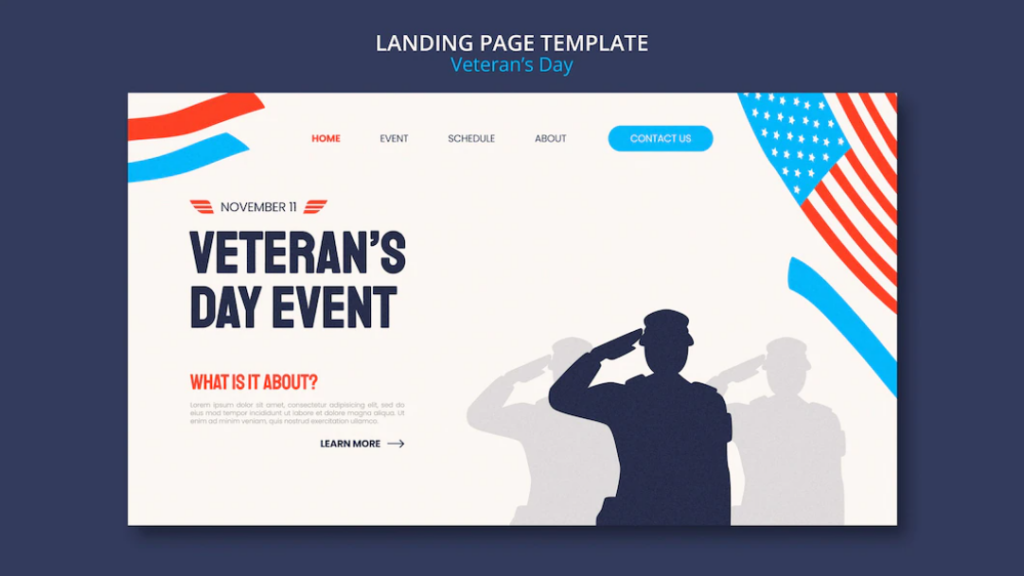
Although it may seem like a lot of work, creating an event marketing website can bring in thousands of leads and generate many B2B marketing leads. It can also serve as a platform for promoting the event to a broader audience through social media and email marketing campaigns.
Here are some key elements that can help make a robust event website:
- A clear and compelling event description: The event description should communicate the purpose and value of the event to potential attendees.
- Attractive design and layout: The website should be visually appealing and easy to navigate, with a clear information hierarchy and a consistent look and feel.
- Event schedule and speaker information: Provide a detailed plan of events and speaker bios to give attendees an idea of what to expect at the event.
- Registration and ticketing information: Make it easy for attendees to register and purchase tickets by providing clear instructions and a secure payment process.
- Social media integration: Connect the event website to social media platforms to encourage attendees to share information about the event and help build buzz.
- Blog or news section: Use the website to provide updates and additional information about the event and industry-related news and content to keep attendees engaged.
A robust event website can help create a professional image for the event, generate interest and drive attendance, and provide a convenient and central location for attendees to access all the information they need.
3. Use Social Media To Promote The Event
Leverage social media to promote your event: Social media platforms, such as LinkedIn, Facebook, and Twitter, are great ways to promote your event and engage with potential attendees. Generate a hashtag for your event and encourage attendees to share it on social media.
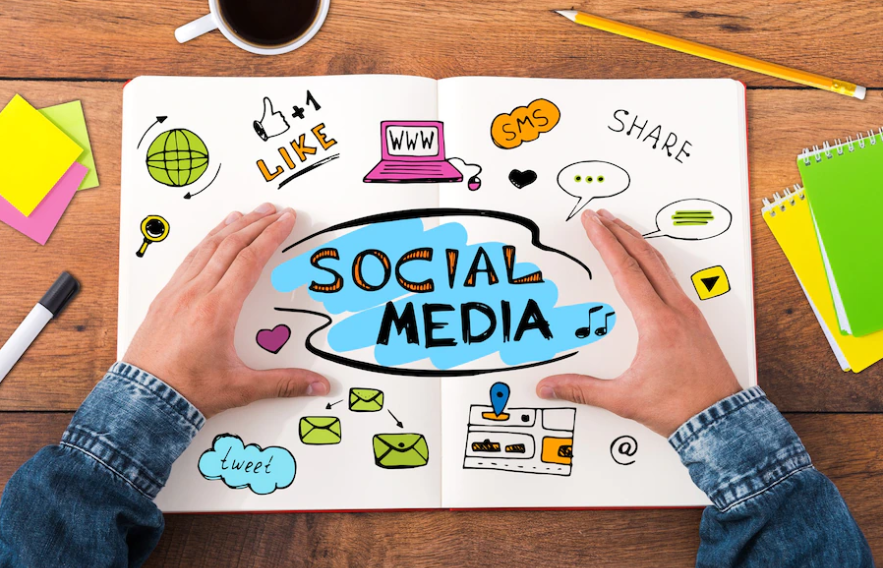
Promoting an event on social media can be a good and effective B2B (business-to-business) event marketing strategy for several reasons:
- Reach: Social media platforms have a large user base and can help you reach a wider audience. You can target specific groups or demographics with your event promotion by using relevant hashtags or paid advertising options.
- Engagement: Social media allows for two-way communication and can help create a community around your event. You can engage with potential attendees by answering their questions, posting updates, and sharing content related to your event.
- Cost-effective: Promoting an event on social media can be a cost-effective way to reach many people. Many social media platforms offer paid advertising options, but you can also use organic methods such as posting updates and using relevant hashtags to promote your event for free.
- Measurable: Social media platforms provide analytics and metrics that can help you track the performance of your event promotion efforts. You can gain insights into how many people saw your event promotion, how many people clicked on it, and how many people registered as a result.
Promoting an event on social media can be an effective way to access a wider audience, engage with potential attendees, and track the success of your promotion efforts.
4. Partner with Other Companies Or Organizations
Partnering with other companies or organizations can help you reach a larger audience and increase the chances of success for your event. Approach companies or organizations that have a similar target audience or mission as your own.

Reaching out to other companies or organisations can help expand the reach and impact of the event. By partnering with organizations with a similar target audience or complementary products or services, you can appeal to a more extensive and diverse group of attendees to the event.
Additionally, partnering with other organisations can help increase the event’s credibility and authority, as it shows that multiple reputable organizations are involved in the event.
Another benefit of partnering with other companies or organizations for B2B events is that it can reduce the cost and workload associated with planning and promoting the event.
For example, you can share the cost of event venues, promotional materials, and other expenses with your partner organizations. Additionally, you can leverage each other’s networks and resources to reach more potential attendees and generate buzz about the event.
Finally, partnering with other organizations can create new opportunities for collaboration and networking.
By bringing together a diverse group of industry professionals and experts, you can facilitate valuable connections and partnerships that can lead to future business opportunities.
5. Offer incentives for early registration
Offering incentives for early registration, such as discounted tickets or exclusive access to specific sessions, can drive early registration and increase attendance at your event.
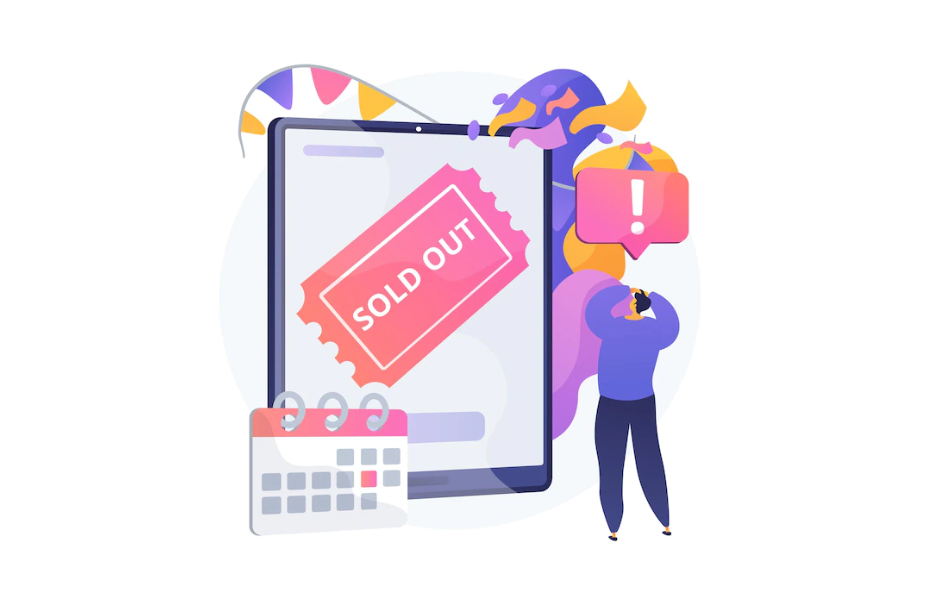
Offering incentives for early registration can be a good and effective B2B event marketing strategy for several reasons:
- Early bird discounts: Offering discounted registration fees for attendees who register early can effectively encourage people to sign up for your event. This incentive is beneficial if you are trying to fill up your event quickly, as it can help to create a sense of urgency among potential attendees.
- Priority access: You can also offer incentives like priority access to popular sessions or networking events to attendees who register early. This incentive can be a great way to give attendees a reason to register early and make them feel like they are getting something extra.
- Improved planning: Offering incentives for early registration can also help you with planning and logistics. By knowing how many attendees you will have ahead of time, you can better plan for things like venue size, catering, and other logistics.
Offering incentives for early registration can effectively encourage potential attendees to list themselves for your event and help you with planning and logistics. It can also create a sense of urgency and make attendees feel like they are getting something extra by signing up early.
6. Follow up with attendees after the event
It’s crucial to follow up with attendees after the event to gather feedback and gauge the success of your event. This endeavour will help you identify areas for improvement and plan for future events.
Following up with attendees is a good and effective event marketing strategy for several reasons:
- It helps improve customer satisfaction: Following up with attendees after the event, you can ask for feedback and gather insights on what worked well and could be improved. Attendee feedback can improve attendees’ overall experience and increase customer satisfaction.
- It helps build relationships: By staying in touch with attendees after the event, you can strengthen your relationships with them. This endeavour can be significant for business events, as building strong relationships with clients and partners can benefit a long-term success.
- It helps generate referrals: If attendees had a positive experience at your event, they might be willing to refer others to attend future events. By following up with attendees and thanking them for their attendance, you can encourage them to spread the word about your events to their networks.
- It helps increase attendance at future events: By staying in touch with attendees and providing them with updates and information about future events, you can increase the likelihood that they will attend again. Doing so can be especially effective if you offer early bird discounts or other incentives to encourage attendance.
Following up with attendees is an excellent way to show appreciation for their attendance and to build relationships with them. It can also help to generate referrals and increase attendance at future events, making it an effective event marketing strategy.
Eventible, a first-of-its-kind event review platform for B2B events, conveniently collects unbiased reviews from attendees, speakers, and sponsors and measures your event ROI. The reviews collected help improve the quality of events and better the attendee experience with every passing year.
Additionally, collecting reviews helps attendees find the best and most successful b2b events worth the tickets using accurate peer insights. Eventible’s review platform is trusted for B2B events and has successfully used its survey questions to poll 200,000 attendees and bring in over 5,000 responses across 800 events. Read our blog, Conference Feedback: Why Is It Important & How To Collect It? and the role Eventible plays in collecting it.
Key Takeaway
Business-to-business (B2B) event marketing promotes and plans events for businesses. It is a fruitful way for businesses to connect with potential clients and partners, showcase their products or services, and establish their brand as a thought leader.
However, events are resource-intensive and can work only when a solid event marketing strategy is in place. So, if you have a clearly defined target audience, a solid event marketing website, a highly effective social media strategy in place to promote the event, and other sure-fire event marketing strategies in place (such as the ones mentioned above), you’d be good to go!






Comments are closed.